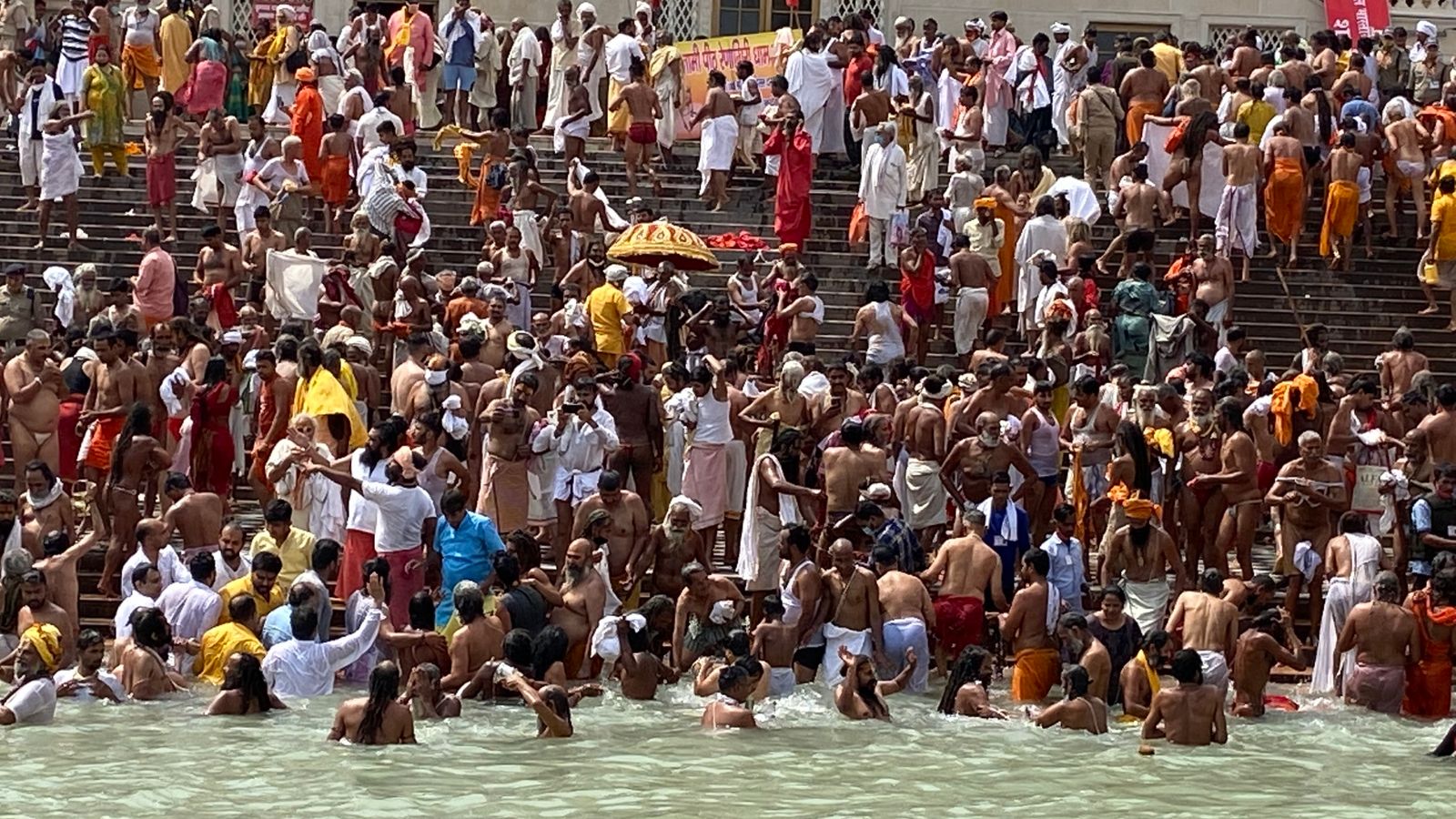They have gathered in their millions in the temple town of Haridwar, in Uttarakhand.
Hindu pilgrims have come to celebrate Maha Kumbh Mela, a religious festival that happens once every 12 years.
And today is a very auspicious day in the religious calendar to take a dip in India‘s River Ganges.
Live COVID updates from across the UK and around the world
All this amid a raging pandemic.
The festival has been been flagged as a super spreader as more than 50 million people are expected to attend this month-long event.
The country registered almost 170,000 new cases in the last 24 hours, the highest number of COVID-19 cases anywhere in the world.
With more than 13.5 million cases, India is second only to the United States.
In the same period, 839 people died, taking the total number of COVID-19 related deaths to 170,209.
Sarasswati Dattani, 56, has travelled over 400 miles (644km) from Rajasthan with her husband.
She tells Sky News: “Our children had tried to stop us because of coronavirus.
“I am not afraid, Mother Ganga is with us all the time.
“People are getting the virus sitting at home. We have to die once, it’s all in God’s hands.”
Raghav, 25, from Jalandhar in Punjab, says “coronavirus could not stop me from my belief in God, our faith is far stronger than anything at the moment.
“I have also come to pray that this pandemic gets over soon.”
The devotees come from every part of the country and a majority are from smaller towns and villages.
The fear among health activists is that rural India will be exposed to the virus.
Speaking to Sky News, Dr Atulya Mishra, who is the medical officer in charge of a section of the banks, said: “People are very irresponsible, they do not follow any of the COVID-19 behaviour protocols.
“We provide them with face masks but people don’t wear them.
“We put our lives on the line while the public takes the virus very lightly. It is very frustrating for us health workers.”
The administration has enforced COVID-19 protocols – pilgrims must wear face masks and are only allowed to attend with a negative PCR test result.
But in reality, social distancing is almost impossible to enforce.
India is in the midst of a second wave.
The low number of cases in the winter months had lulled people into believing it’s over.
Opening up society, a low fatality rate and vaccinations have led to Indians letting their guard down.
For many weeks the country has been immersed in state elections.
The prime minister, his cabinet and leaders of all political parties are campaigning at rallies with thousands in attendance.
Roadshows expose every nook and corner.
Experts have also said the new variants of the virus are far more infectious but less lethal.
Genome sequencing of all cases in Punjab show around 80% of them are due to the UK variant.
While millions will make their way to the Maha Kumbh over the next few weeks, the rising number of cases are sure of grave concern for the government.
India began its vaccination programme on 16 January but less than 1% of the population have been fully vaccinated.
Though the process had a slow start it has picked up pace over the last few weeks.
India may have one of the lowest fatality rates in the world, but it can ill afford a severe burden on its already inadequate and creaking public health care system.
For decades successive governments have spent just over 1.2% of the GDP on healthcare.
Over 70% of its citizens rely on expensive private health care and one illness can push a family into poverty.





